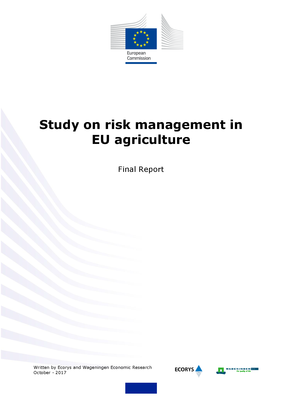Agriculture in the EU is subject to a number of risks. These include increased price volatility for many agricultural products and fluctuations in yields. Among other things, climate change and its weather events have an influence on this. But animal and plant health risks also play a role.
The analysis of risk management instruments in a study commissioned by the EU Commission shows, among other things, that insurance policies are used to varying degrees throughout the EU. So-called mutual funds are usually only effective if they are mandatory. Contractual price agreements (e.g. forward contracts) are generally used less frequently and can be found where farmers are more organised, such as in producer groups.
Overall, however, there is an upward trend in the supply and use of instruments. The stakeholders surveyed emphasised their relevance, particularly with regard to the risks posed by weather events and animal diseases. It was found that certain risks, as well as agricultural sectors and types of farming, are better covered than others: For example, there are gaps with regard to drought. Livestock farmers are less well protected than arable farms, while small and medium-sized farms are less well protected than large farms.
The authors of the study emphasise the need for a better interaction of targeted risk management instruments with other instruments of the CAP. They show how a more effective agricultural ex-ante risk management could be developed to cope with the increasing range of risks to European agriculture, including the different risk profiles of Member States. Recommendations for action in agricultural policy include, among other things, the promotion of management skills in dealing with the instruments, e.g. by providing funds for the implementation of pilot measures.
In 2017, IfLS participated as a subcontractor in the study on risk management in EU agriculture commissioned by the European Commission. The full report as well as individual case studies on different thematic focuses are available for download here.
Contact persons at IfLS: Simone Sterly (sterly[at]ifls.de) and Sarah Peter (peter[at]ifls.de)
